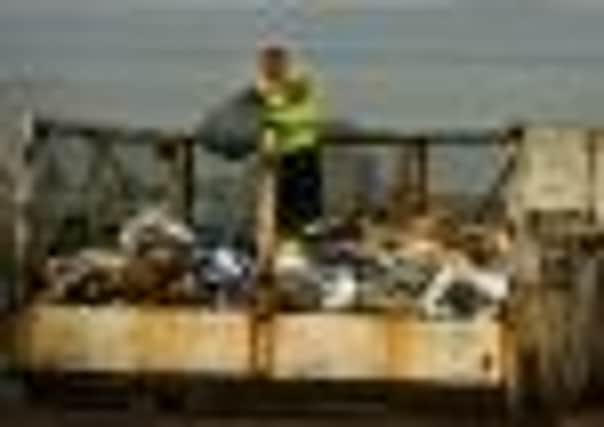Fiona McCade: no magic, just stuff costing us the Earth


It’s doing nothing because you can’t play with it. It’s totally redundant as a toy. It is simply two pieces of cheap plastic, hinged together and covered in stickers – an ugly, useless, illegal, piece of stuff. But what terrifies me most is the fact that it was mass-produced. Thousands of these abominations must have been defecated out of the bowels of some Taiwanese factory and muck-spread across a world that has more money than sense.
Mankind appears to have a never-ending appetite for meaningless stuff, even if it costs us the Earth.
Advertisement
Hide AdAdvertisement
Hide AdThe World Wildlife Fund’s 2012 Living Planet report says that we’re using up 50 per cent more resources than our planet has to give.
At this rate, by 2030, we’ll need two more Earths to sustain us in the manner to which we have become accustomed – and if everybody lived like the average American, we’d need three more.
So, we’re hurtling towards ecological and environmental oblivion, people are starving, thousands of species are facing extinction, and yet somehow, the human race is still merrily squandering precious resources making bits of plastic that go from factory, to consumer, to landfill, in much the same time it took you to read this sentence.
Why are we constantly creating more and more pointless, worthless stuff? Making things that have no value at all, and bankrupting ourselves and our planet while we’re doing it?
The answer is money, of course, and so long as money is considered to be the most valuable thing we possess, we’re in big trouble.
Capitalism creates stuff, because stuff makes money.
I don’t believe that we live in a consumer-driven society. We live in a manufacturer, advertiser, and promoter-driven society which depends for its survival on convincing people that they need stuff. Most of the time, they don’t, but they are forever being told that buying stuff will make them happier. This is a lie, but it’s a money-making lie, so it’s allowed.
I don’t need a Taiwanese “Harry Potter” rip-off toy in my house to realise that I already own way too much stuff. I do try to buy sustainable, quality goods that will last, but I don’t always manage it.
I own too many supermarket t-shirts and bargain-basement bits and pieces to claim any top-notch eco-credentials, but if someone like me – veggie, into recycling, fussy about how far her green beans have been flown – can accumulate so much stuff, and be so unconsciously wasteful, it makes my head spin to think what the average Texan must be getting up to.
Advertisement
Hide AdAdvertisement
Hide AdMankind’s current situation is so mind-blowingly depressing, it makes the end of the Mayan calendar seem like a blessed release, but maybe we can drag ourselves and our planet back from the brink of self-annihilation.
An optimistic Australian environmentalist called Paul Gilding has analysed our predicament in a new book called The Great Disruption: Why the Climate Crisis Will Bring On the End of Shopping and the Birth of a New World.
The idea that Western civilisation will ever stop shopping seems even less likely than three new planets magically appearing next door, but Gilding states that this is what will happen.
He believes our future depends on people working less and owning less.
“You need a growth model based on giving people more time to enjoy life, but with less stuff,” he says. “We are heading for a crisis-driven choice. We either allow collapse to overtake us or develop a new sustainable economic model. We will choose the latter. We may be slow, but we’re not stupid.”
I pray he’s right.
But as the owner of a counterfeit, Taiwanese, “Harry Potter laptop”, I’m not really qualified to comment on stupidity.